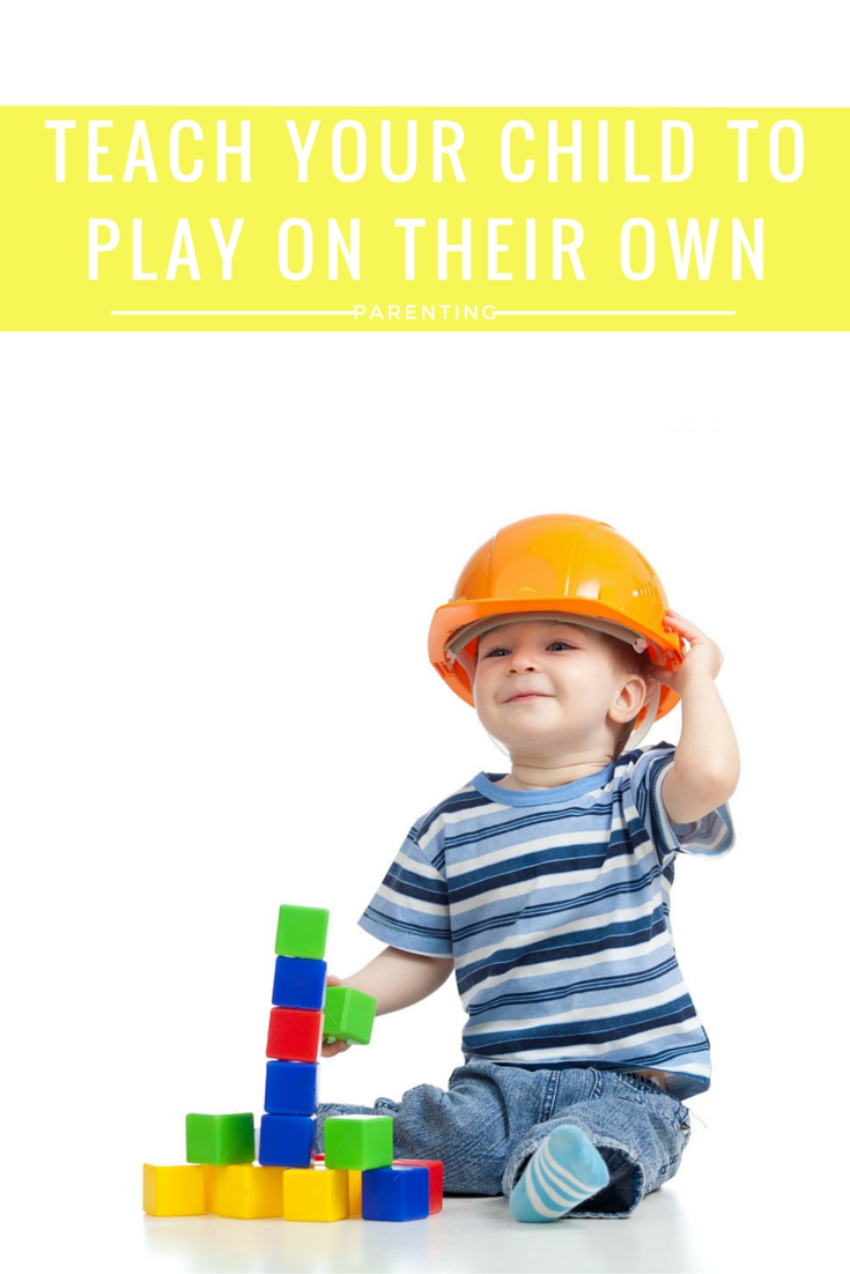Amy has always been my Little Miss Independent. She’s very confident and loves trying things on her own and I have always encouraged her to do so while reassuring her that I am there to help, if she needs me to. Teaching your child to be independent is something that I personally find very important, because it helps them to figure out who they are as a person and where their strengths and weaknesses lie. Playtime is a great to make a start as playing on their own will not only teach your children independence and self-confidence, but also help to to find their own interests.
Not every child is as happy as Amy to play independently, so I thought I’d share a couple of tips with you that will help you teach your child to play on their own, so you can get on with your chores or have a cup of tea while it’s still hot.
Teach your child to play on their own
1. Lower your expectations
Don’t expect your child to play themselves when they are hungry or tired. Try and introduce independent play when they’re at their happiest, maybe after lunch or after a nap.
2. Create a child-friendly space
When preparing your child to play on their own, it is important to create a stimulating and safe place for them. Their safety should always come first. Try and go down to your child’s level and look at the room from their perspective to spot potential hazards.
3. Don’t overwhelm your child
Having a playroom full of toys can overwhelm children and stop them from playing by themselves. If you want to teach your child to play on their own from time to time, provide them with age-appropriate toys or games that they can figure out without your help and rotate them regularly. This will help them build their confidence and independence and stop them from getting bored.
4. Imagination is the key
Toys that need your child’s imagination will keep them busy for longer, so having building blocks, art supplies or a dressing up drawer in their play or bed room will help your little ones to play alone for longer. Science experiments are always a winner too.
5. Well done
No matter, if you teach your child to play on their own or use the potty, encouragement and positive reinforcement are the way forward. If you see that your child is getting bored or losing concentration, tell them how nicely they are playing, point out something they’ve done particularly well or challenge them in a positive way, e.g. “Wow, look at that amazing tower you’ve built. Do you think you can add another two or three bricks to it?”.
6. It might get messy
If you want to teach your child to play on their own, you’d better prepare yourself for it to get messy, but that’s okay as long as they are safe. In summer, it makes sense to move things outside. If you don’t have an outside space or the weather gods are against you, a splash mat is an absolute must-have as are an apron or overall for your budding artists and crafters.
7. Learning to play independently is a process
When you teach your child to play on their own, it is important that it’s a learning process for them. Gradually increase the time periods that you leave the room for during playtime. If your child is younger, try and build some mental distance first by focussing on something different than your child’s play, e.g. read a book in your child’s room. This way you are showing them that you are still present while taking your focus away from them.
I hope these tips will help you. How did you teach your child to play on their own or is this something that you are looking to work on with them? I’d love to hear your tips and/or worries.
Image credit: Science Daily and Free Great Picture














A great post Carolin and so important for their development (and your sanity)
I’ve always taken this standpoint with my children and it’s paid off really well. They’re quite happy to potter about on their own and create games and fun out of virtually anything. Very poignant post Carolin, thanks for sharing!
Some great tips, whilst it’s important to play with your child they do need to learn the importance of entertaining themselves.
Loved this post. After a hectic period of travelling I have spent this morning feeling guilty that my two were happily playing on their own while I caught up with some work. This has made me realise how ridiculous that feeling guilty is, and that playing on their own is actually a very important skill…
a great read Carolin with some really useful tips. I played with my two a lot when they were young but as they got older and could interact with each other, I have sat back and let them play and use their imaginations. That is not to say they don’t have days when they won’t play but on the whole they get on with it x